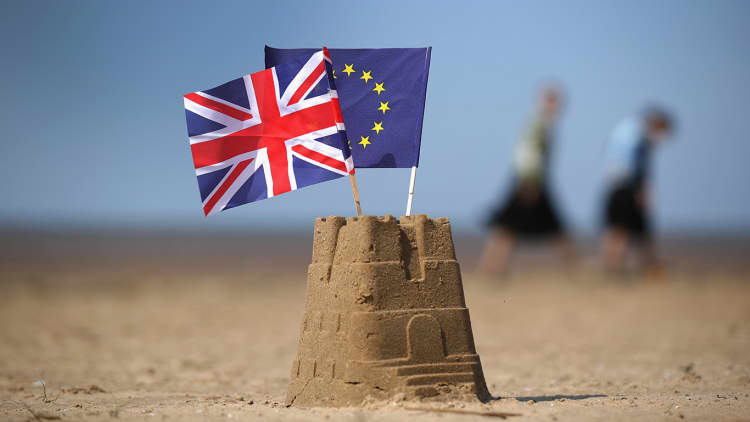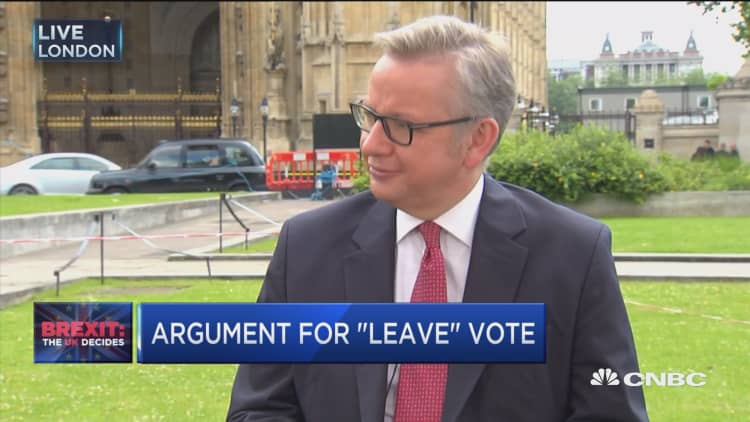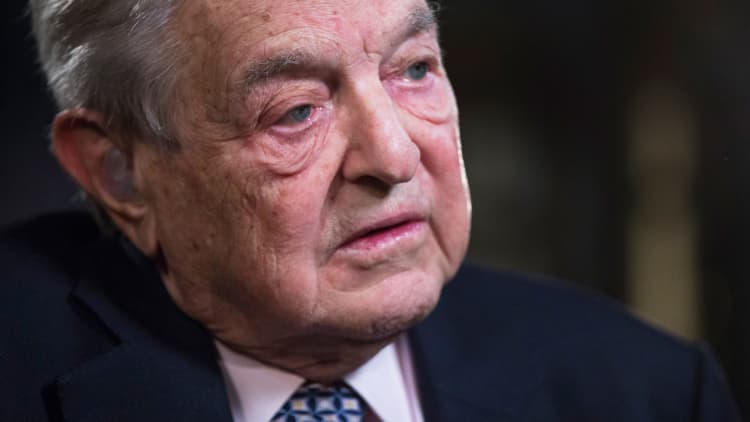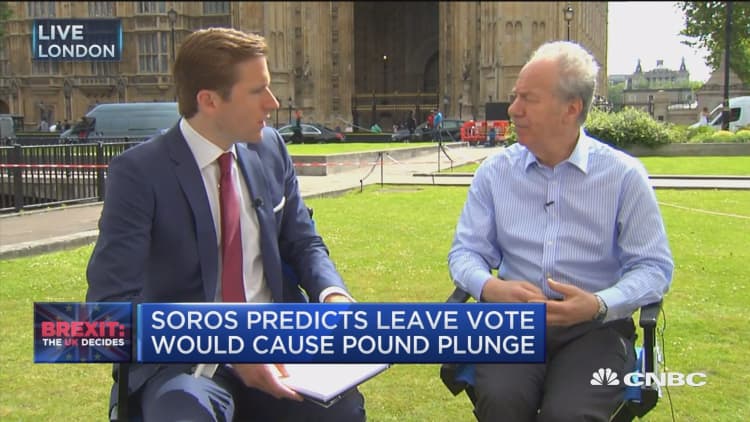



Nouriel Roubini, the economist who famously predicted the 2008 stock market crash, has added his voice to the many leading economists warning of the dangers around a U.K. exit from the European Union.
Roubini, nicknamed "Dr Doom" after a series of gloomy forecasts, laid out his warnings for the U.K. in a series of tweets on Tuesday, ahead of the referendum Thursday. He argued that the country's substantial current account and fiscal deficits "may risk a sharp currency fall and a sudden stop of capital" if a majority of voters opt to leave the EU.
The country's current account deficit hit a record £32.7 billion ($48.1 billion) in the last quarter of 2016, according to the U.K.'s Office for National Statistics.
Economists from his Roubini Global Economics also warned of "potentially the biggest shock to Europe's economic and political stability in recent times" in a research note published on Tuesday.
Roubini joined a clamor of respected economists and financial wizards warning of the perils of a Brexit, as polls suggest a close finish in Thursday's vote. George Soros, the legendary currency trader, warned of a potential "Black Friday" shock to asset markets if U.K. voters decide to leave the trading zone in an editorial for The Guardian newspaper on Tuesday.
Those in the Brexit camp argue that the U.K. would in fact benefit from better access to other markets if it were removed from the EU, and freed from the perceived regulatory and financial burden it represents.


